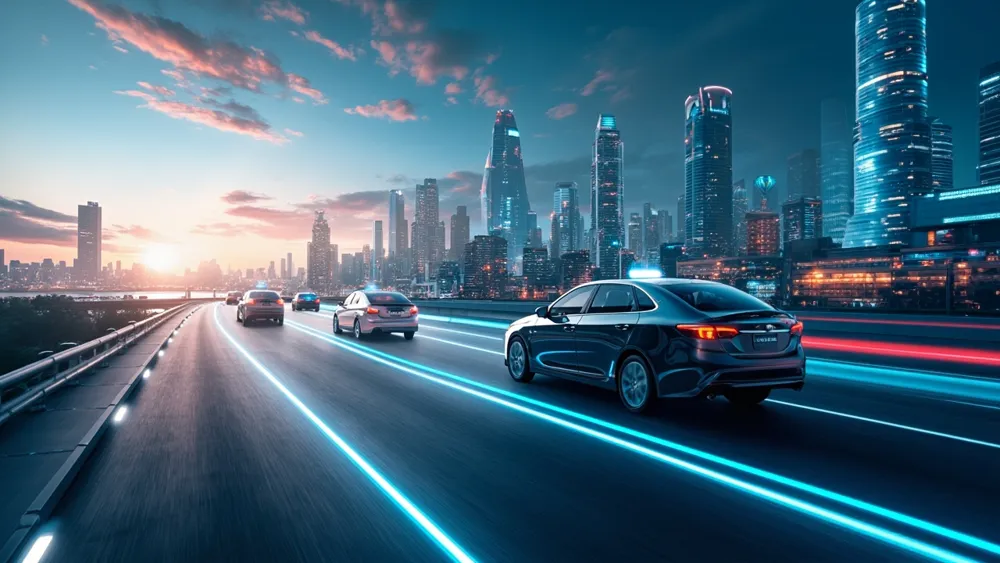Elon Musk's Robotaxi Announcement: Breakthrough in Autonomy or Over-Promise?

In a significant marker for the future of transportation, Tesla's CEO Elon Musk has confirmed that the company's robotaxi service will roll out in Austin, Texas by the end of June 2025. This announcement is not just a momentous commitment for Tesla, but also reflects broader trends in autonomous vehicle technology that could reshape urban mobility, challenge regulatory frameworks, and transform consumer perceptions. As automakers and tech giants alike ramp up efforts to get ahead in the race for self-driving technology, Musk's move encapsulates the dual ambition of meeting market demand while navigating the complexities of safety, regulation, and competition.
Tesla's deployment strategy for its robotaxis, which will start modestly with a fleet of just ten vehicles, signifies a cautious yet aspirational approach. While this pilot will allow for extensive monitoring and a controlled environment, it raises critical questions about scaling. Unlike Waymo, which has already achieved operational success with 250,000 paid rides per week across various urban centers, Tesla's self-proclaimed generalized approach—predicated on camera-based systems rather than traditional sensors like lidar—might face both technical and public acceptance hurdles. Historical precedents remind us of the challenges faced during the 2008 crisis, where overly ambitious scaling without adequate safety and regulatory measures resulted in broader industry setbacks. Could Musk's excitement be a repeat of overly optimistic tech forecasts that inflate investor expectations?
In addition to technological readouts, this rollout comes at a time when Tesla has faced notable sales volatility, including a 20% year-over-year drop in automotive revenue during Q1 2025. Although Musk attributes this to factory retooling in anticipation of newer Model Y vehicles, it underscores the fragility of Tesla's market position in the face of substantial competition from both legacy automakers and newer entrants. Concern over Musk's political entanglements and their impact on consumer sentiment cannot be overlooked, highlighting an unintended consequence that regulators and stakeholders may not have fully accounted for. As such, investors must evaluate not only the technological viability of Tesla’s robotaxi program but also its potential to extend beyond the Austin pilot amid evolving public sentiment.
The implications of Tesla's robotaxi plans extend beyond the immediate operational phase; this venture opens a Pandora's box of regulatory considerations that will require substantial attention from policymakers. Given that Tesla plans to 'geofence' its initial operations, local authorities will have invaluable data to gauge public safety and operational efficacy. It poses a strategic opportunity for Tesla to collaborate with these stakeholders in developing adaptable regulatory frameworks, thereby potentially easing future rollouts. Investors must also remain vigilant as perceptions shape market reactions—what happens if consumer trust falters due to safety concerns or mismanagement? As Tesla seeks to instill confidence through remote monitoring of its fleet, the challenge remains: can they recalibrate consumer sentiment in a landscape marked by skepticism?
In conclusion, while the rollout of Tesla’s robotaxi service symbolizes a pivotal advancement in autonomous technology, it also presents a landscape laden with both risks and opportunities. With ambitious scaling intentions tempered by cautious pilot programs, stakeholders from investors to regulators will need to navigate this transformative but uncertain journey. As we watch this space, it is essential to consider: will Musk's vision for a robotaxi future be realized, or could it fall victim to the very challenges that have historically plagued perennially optimistic tech forecasts? The coming months will not only shape the trajectory of Tesla’s ambitions but may also signal wider shifts in urban transportation norms.
Read These Next

Armenian Crime Rings Charged with Stealing $83M in Amazon Cargo
Analysis of a significant security breach at Amazon involving a $83 million cargo theft by organized crime, its implications on supply chain security, consumer trust, and potential regulatory scrutiny.

Dongjie Intelligent Technology Group's 2024 Annual Report: Navigating Challenges and Opportunities
This article analyzes Dongjie Intelligent Technology Group Co., Ltd.'s 2024 annual report, focusing on its financial performance, operational trends, and strategic outlook amidst challenging market conditions.

Afghans Praise China's Cultural, Industrial, and Scientific Advancements
Afghan journalists praised China's tech advancements and discussed potential cooperation during their recent visit.
